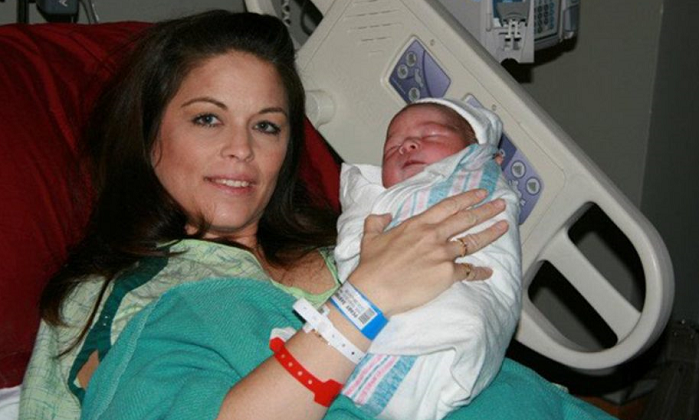A five-time surrogate mother, Didi Perry went into the business to help people who could not become parents naturally.
The Dallas, Texas woman, who has three children of her own, recently gave birth to her last surrogate child a few months shy of her 50th birthday, according to the Daily Mail.
“I enjoyed being pregnant with my own kids and I wanted to do something that would help someone else,” Perry said. “I love how healthy I feel when I’m pregnant and I love the feeling of the baby moving around.”
It’s clear that Perry has noble intentions, and a family’s desire for children is certainly to be encouraged. But surrogacy presents a number of troubling ethical issues for all parties involved.
Perry said her fifth surrogate baby was her last, but her work in surrogacy is not over. She now works for Surrogacy Solutions, a Texas surrogacy agency, matching surrogates with parents, the report states.
She also said it felt “incredible” to see the parents hold their baby for the first time, and she did not become a surrogate for the money. The report noted Perry charged a lower fee than most surrogates.
Here’s more from the report:
Didi acted as a gestational surrogate each time, so the intended mother’s eggs were transferred into her uterus through IVF. Her advancing age didn’t hinder the implantation and all of the pregnancies went smoothly.
While helping others is her main reason for spending eight years mostly pregnant, Didi admits that she enjoyed being pregnant because it made her feel healthy – and she’s a huge fan of wriggly babies.
… While some surrogates are drawn by the lure of money, she maintains her main goal was giving families the gift of a child and saw the pay as an added bonus.
Ana Brennan, J.D., recently outlined a number of serious concerns with surrogacy, one being the commoditization of human life.
Follow LifeNews.com on Instagram for pro-life pictures and the latest pro-life news.
Brennan, vice president of the Society of St. Sebastian and senior editor of its “Bioethics in Law & Culture,” wrote:
The terms of a surrogacy relationship are spelled out in a contract. A contract that stipulates the creation of a child with the intended purpose of being sold.[ii] Under these agreements, a woman who is not genetically related to and did not give birth to the child is legally the “mother”; whereas the other women involved are nothing more than a donor and incubator with no parental rights. Their bodies are commodities to be purchased for a service. The creation, selection, and destruction (eugenics) of embryos, contractually mandated abortion should a disability or the wrong gender be discovered later, selective reduction, and the surrogate surrendering nine months of her life to the control of third parties, down to what she can eat; all of these issues are standard terms of a surrogacy contract.
Many countries either regulate surrogacy heavily or prohibit it altogether. A 2015 European Union Parliament resolution “condemn[ed] the practice of surrogacy” because it “undermines the human dignity of the woman since her body and its reproductive functions are used as a commodity.”
The United States is an exception. As a result, difficult legal situations are moving through the courts to determine issues involving parental rights.
The high-profile case of California surrogate Melissa Cook is one example. While pregnant, Cook said the father of her surrogate triplets pressured her to abort one or two of them. Cook refused and later sued, regretting her involvement in surrogacy. She is seeking custody of at least one of the triplets, but she said she is willing to parent all three.
A number of American surrogate mothers have reported feeling pressured to abort the unborn babies who they were paid to carry. In 2016, a Colorado surrogate mother faced pressure to abort an unborn baby who was diagnosed with Down syndrome. She also refused, despite the threat of a lawsuit, and now is raising the girl herself.








